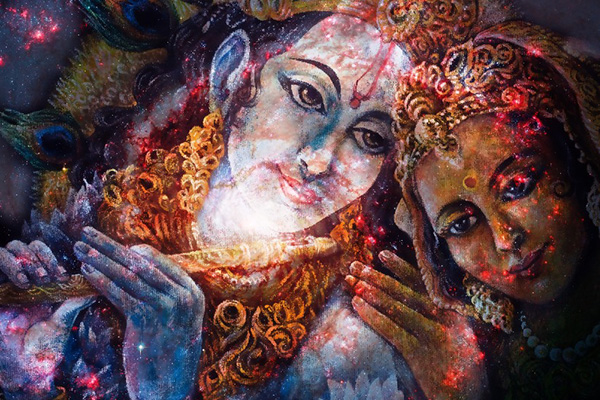unconditional love
A Year Of Charity And Personal Prosperity
 A new year tends to inspire the mindset of a fresh, new start. It is a time of high hopes that this year is going to be better, or that one is not going to make the same mistakes as last year. But what does spirit forecast for the year that lies ahead?
A new year tends to inspire the mindset of a fresh, new start. It is a time of high hopes that this year is going to be better, or that one is not going to make the same mistakes as last year. But what does spirit forecast for the year that lies ahead?
From my guides I received a confirmation that we will be on the right path this year as long as we keep our attitudes positive and our intentions true to our heart. As children of God, Source, Spirit, the Divine we are to always expect only the best, as long as whatever we desire does not harm or deprive others. If we set a sincere intention for our own highest good, as well as the highest good of others, the best will happen for us, in the right way, at the right time.
The year 2023 is set to be a year of greater tolerance, mutual understanding, unconditional love, compassion, and kindness. The world has grown weary with all the conflict, drama and hate in recent years.
At times it is difficult to find these noble qualities within ourselves, especially after we have suffered trauma, loss, or a major disappointment. However, the more we can dig deep within to express these qualities, the better this year will turn out for all of us.
This is a year to strive for the betterment of humankind. Spirit wishes to encourage us to make more of an effort in 2023 to help and support others wherever we can. It does not necessarily have to be financial or material if one simply cannot afford it, but is good if you can. There are many ways we can care for others, including a silent blessing, a hug, a prayer, a meal. Simply mowing someone’s lawn, shoveling their snow, or doing their shopping can sometimes transform, even save a life.
Nothing Tastes Sweeter Than Gratitude
 During the holidays, most homes and businesses have their festive lights and decorations up. One of the parking lots in my neighborhood is currently featuring a flamboyant set of beautiful red lights that really struck me as I was driving by the other day. In fact, it caused a strong emotional reaction within me.
During the holidays, most homes and businesses have their festive lights and decorations up. One of the parking lots in my neighborhood is currently featuring a flamboyant set of beautiful red lights that really struck me as I was driving by the other day. In fact, it caused a strong emotional reaction within me.
Now, what might be so profound or special about a display of red Christmas lights, you may wonder. It is, after all, a typical holiday decoration seen everywhere this time of year. So, what’s the big deal? Well, those lights set me off so much because it brought back precious memories of my childhood.
I grew up in a very small town in New Brunswick, Canada. My family struggled and we were very poor. However, that did not prevent my parents from ensuring that we still enjoyed a few rare luxuries and treats on special occasions.
The most memorable of these were the “barley toys,” as we used to call them. Every Christmas, it was the tradition for each of us to receive a packet of barley toys. Now, this has nothing to do with actual toys. Instead, a barley toy is a kind of clear sugar lollipop or sucker shaped like a toy. These translucent, glass-like candies traditionally come in whimsical shapes, including various animals, as well as ships, trains, cars and, of course, Santa Clause.
According to the Startup Candy Factory in Provo, Utah, one of the earliest clear toy candy makers in the United States, German immigrants brought this holiday tradition to America and original recipes for it can be traced back to the 1700s. It was originally called “barley candy,” because cane sugar was very scarce at the time, so early candy makers used the cheaper and more readily available barley sugar.
Love Is The Energy That Connects Souls
 There is one great metaphysical force or energy that connects us all. This greatest force is love. Love is the only energy that can truly overcome all and heal all. It connects us to each other – even those that we cannot be with.
There is one great metaphysical force or energy that connects us all. This greatest force is love. Love is the only energy that can truly overcome all and heal all. It connects us to each other – even those that we cannot be with.
Have you ever experienced the phone ringing and you just knew who it was on the other end before you even picked up? Then, once you had said hello, you think to yourself, “How did I know it was her calling?” You even get goose bumps once your intuition is confirmed. It’s a neat feeling, isn’t it?
Well, it’s also like that when out of the blue we think of someone for no reason. It’s usually because that person is also thinking of us. We are all connected.
We have naturally have what it takes to make these connections happen. One of the ingredients that it takes to be ‘dialed in’ like that is balance. We need to have balance in our lives. If we are disconnected and out of alignment in our lives we are not tuned in very well to these energetic connections we have with others. This is especially true when we indulge in some form of substance abuse, like smoking, alcohol or drugs. These things can really mess with the mind, body and soul.
You need to be healthy and you need to meditate or pray on a regular basis to help you stay on the vibrational frequency that you need to be to receive intuitive impressions, thoughts and feelings from those you love.
It is very difficult to be able to hear someone or feel someone, and love them so much and want to be with them so much, and not be able to. Know that if you are feeling these things from those you love you are very much connected. Remember, sometimes we have to wait to be with that person physically, because it’s all in divine timing – not our own timing.
The Evolution Of Your Metron
 With the rapid expansion of digital communication technology we are increasingly coming into an evolutionary shift of consciousness as it relates to relationships between individuals in the human family.
With the rapid expansion of digital communication technology we are increasingly coming into an evolutionary shift of consciousness as it relates to relationships between individuals in the human family.
Let’s first look at social and spiritual structures in relationships. I would like to resurrect for the purpose the Greek word metron (μέτρον). Metron is a unit of measure that we can use to explain our sphere of influence, and also the spiritual gifts and styles that we use to influence this sphere.
Many of us have a limited metron, and consistently manifest together with the same grouping of souls on the planet. We each have a family structure that is related to soul agreements before incarnating on the planet. This is why we sometimes meet a person and have the feeling that we have known them our whole lives. What is happening is that our souls are united in the same metron.
We are all inter-connected with one another. Think of it this way: we have the Earth making up one bustling metron of consciousness, or a single metron with many parts. Then we have our solar system making up a greater metron; then the galaxy encompassing the metron units on an even greater scale; next the universe; then the multiverse; and who knows what else is out there compiling greater and greater complexity together.
Our spiritual or soul experience is very similar. We have a small group of people making up our metron, and then we have societal and social structures that increase this metron moving out to a greater and greater expansive experience, until we have the cosmic or universal consciousness.
A Solstice Resolution For The Love Warriors
 The December solstice is upon us toady. The Sun is currently directly above the Tropic of Capricorn in the Southern Hemisphere, marking the shortest day of the year in the Northern Hemisphere and the longest day of the year in the Southern Hemisphere. Traditionally, the solstice is the most spiritual time of the year in many cultures. The solstice season is a time to cultivate our soul purpose and life journey by reflecting on the year that has been, as well as the new year to come.
The December solstice is upon us toady. The Sun is currently directly above the Tropic of Capricorn in the Southern Hemisphere, marking the shortest day of the year in the Northern Hemisphere and the longest day of the year in the Southern Hemisphere. Traditionally, the solstice is the most spiritual time of the year in many cultures. The solstice season is a time to cultivate our soul purpose and life journey by reflecting on the year that has been, as well as the new year to come.
For me, 2022 has been a year of finding increased divine connection and inner strength and peace by expanding my psychic gifts. This year I have particularly focused on expanded my telepathic abilities to promote compassion, love and peace in turbulent, chaotic situations and an intolerant post-pandemic world.
I am proud to report that I have made significant progress. For example, many months ago, my daughter and I were on a public bus together, when the driver aggressively started yelling at a young passenger. He became so unhinged that he stopped the bus, ordered him to get out, and even started start throwing things after him. However, sending out ‘happy vibes’ was not yet my first line of defense back then. Instead, I resorted to calling 911. The city’s transport authorities ultimately dealt with the driver.
Recently, I was confronted with a similar situation, when a bus driver cussed out a child for not wearing a coat. But this time, instead of reporting the driver, I focused on bringing calm and safety telepathically to the driver and the other passengers. It worked, as she soon focused on other matters at hand, such as the flow of traffic, instead of escalating in her anger towards the child.
The Healing Power Of A Smile
 I have noticed something very interesting lately, since we are no longer wearing masks in public. There are two types of people: those who often smile and laugh, and those who do not. You can smile at some people that seem to not be very happy and they will smile right back at you, while others will just look at you like you’re an alien.
I have noticed something very interesting lately, since we are no longer wearing masks in public. There are two types of people: those who often smile and laugh, and those who do not. You can smile at some people that seem to not be very happy and they will smile right back at you, while others will just look at you like you’re an alien.
I love to smile at people and change their energy, it uplifts them. I can tell. I can see the auric energy around those who smile, and it’s much brighter and lighter. It’s a healing, positive energy. Those that don’t smile have dark and cloudy auras. It makes me feel good to help people get into a better mood and access their higher consciousness, as it will just keep the ball rolling for a positive domino effect for the rest of their day.
But there are those people who find nothing pleasant or amusing and will not smile for anything. I understand that sometimes life just seems to hand us a bad hand of cards, or just seems depressing or no fun. But we all have the ability to smile and our sense of humor is a gift from God. If you can’t smile for yourself to change your own energy, or find yourself unable smile back at those that smile at you, maybe take a look in the mirror and that may inspire you to crack a smile. It changes energy and lives.
As a psychic, I consult many people who are in unloving relationships and marriages. They stay with partners who are unkind, abusive, or unfaithful. They carry a torch for spouses who talk them down to them and make them feel less than. For many it causes mental and physical health problems.
The Selfless Flow Of Divine Love
 Love is a divine spiritual energy. It originates in the divine heart of the Supreme Personality of Godhead. The internal energy of his love is so strong that it emanates out of his body as love personified, in the form of the Supreme Goddess.
Love is a divine spiritual energy. It originates in the divine heart of the Supreme Personality of Godhead. The internal energy of his love is so strong that it emanates out of his body as love personified, in the form of the Supreme Goddess.
In the spiritual tradition of Bhakti, which is founded on the Vedas, a collection of religious texts originating in ancient India, the Supreme Goddess is identified by the Sanskrit term shakti, the primordial divine feminine energy, and the Supreme God as shaktiman, the divine masculine source of this cosmic energy.
She also bears the name Radha, meaning she who gives the greatest pleasure to him, whom she calls by the name Krishna, the ‘all-attractive.’ Together, they form the Divine Couple, an eternal reservoir of reciprocal divine love which ever increases.
Love is alive. It is a living, giving, and flowing force. Love, like God, is unlimited and ever-expanding. Divine Love offers its transcendence for us souls in this world to follow, serve, and ultimately return to our original, eternal spiritual nature.
Our spirit, soul or jivatma is therefore an expression of the primordial energy of the shaktiman, which emanates both from and for his love. Whereas Radha’s love is infinite, we individual souls are infinitesimal. We merely serve to enhance and celebrate with our supreme existence the Divine Couple’s infinite love, which in turn imbues our souls with joy.
One way our soul can serve the joy and union of the Divine Couple in this world is by allowing the spiritual energy of love to flow through our own heart to others. The beauty of true love is that it is never selfish and does not seek to satisfy the demands of the ego. Like a river rippling toward the ocean, divine love courses toward the one it fills with its own essence.